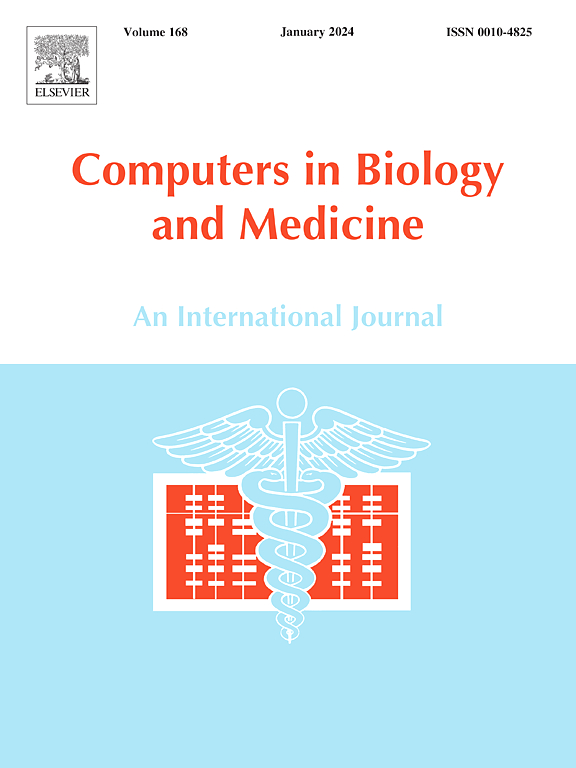基于粪便挥发性有机化合物谱预测结直肠癌的新算法
IF 6.3
2区 医学
Q1 BIOLOGY
引用次数: 0
摘要
本研究利用先进的热解吸-气相色谱-质谱(TD-GC-MS)技术,构建了一种用于大肠癌诊断的粪便样本分析算法。该算法在整个光谱范围内进行综合分析,以确定区分三种不同健康状态的复合模式:结直肠癌、结直肠腺瘤和正常结肠镜检查的对照组。该算法经过了严格的优化过程,灵敏度和特异性达到100%,有效地消除了假阳性和假阴性。在验证阶段,该算法表现出显着的性能,灵敏度范围为74%至68%,特异性范围为58%至52%,准确率为66%至62%(范围跨越20个随机训练测试分割)。值得注意的是,在息肉样本的背景下,即使仅使用健康个体(即对照组)和癌症患者的数据进行训练,该算法也获得了54%至50%的灵敏度范围。此外,还提供了化合物的详细表及其在癌症、腺瘤和健康样本中发生的概率,从而深入了解了该算法的可解释性。这种定性方法标志着诊断精度的重大进步,并有望加强结直肠癌的早期检测,标志着对该领域的重大贡献。本文章由计算机程序翻译,如有差异,请以英文原文为准。
New algorithm to predict colorectal cancer based on fecal volatile organic compounds profile
In this study, an algorithm designed for the analysis of fecal samples for colorectal cancer diagnostics, utilizing the data from the advanced technique of thermal-desorption-gas chromatography-mass spectrometry (TD-GC-MS), is constructed. The algorithm performs a comprehensive analysis across the entire spectral range to identify compound patterns for differentiating among three distinct health states: colorectal cancer, colorectal adenomas and controls with normal colonoscopy. The algorithm underwent a rigorous optimization process, resulting in a sensitivity and specificity of 100 %, effectively eliminating both false positives and false negatives. During the validation phase, the algorithm demonstrated remarkable performance, with sensitivity ranging from 74 % to 68 %, specificity ranging from 58 % to 52 %, and accuracy 66 %–62 % (range across twenty randomized train-test splits). Notably, in the context of polyp samples, the algorithm obtained a sensitivity range from 54 % to 50 %, even when trained with data from only healthy individuals (i.e., controls) and cancer patients. Moreover, a detailed table of compounds and their probabilities of occurrence in cancer, adenomas, and healthy samples is provided, offering insight into the interpretability of the algorithm. This qualitative approach signals a significant advancement in diagnostic precision and promises to enhance early detection of colorectal cancer, marking a substantial contribution to the field.
求助全文
通过发布文献求助,成功后即可免费获取论文全文。
去求助
来源期刊

Computers in biology and medicine
工程技术-工程:生物医学
CiteScore
11.70
自引率
10.40%
发文量
1086
审稿时长
74 days
期刊介绍:
Computers in Biology and Medicine is an international forum for sharing groundbreaking advancements in the use of computers in bioscience and medicine. This journal serves as a medium for communicating essential research, instruction, ideas, and information regarding the rapidly evolving field of computer applications in these domains. By encouraging the exchange of knowledge, we aim to facilitate progress and innovation in the utilization of computers in biology and medicine.
 求助内容:
求助内容: 应助结果提醒方式:
应助结果提醒方式:


